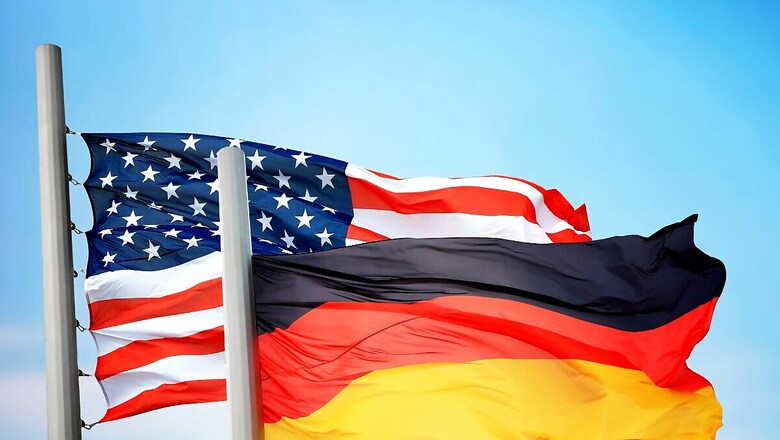
views
Western countries have dominated the rest of the world for centuries. This has ingrained in them some pernicious habits of lecturing the non-Western world, assuming superior moral positions, imposing their own ways of thinking on them, expecting them to accept their political, economic and social models, and so on.
The West still dominates global institutions established after World War II. The Western countries are the richest, the most advanced in technology, the strongest militarily, and they control the international media. This gives them the tools to exert power over the non-Western world, intervene militarily to oust governments or even change the maps of countries, employ the tools of sanctions to coerce others to fall in line with their policies, intervene in the internal affairs of other countries on grounds of promotion of human rights, democracy and protection of minorities.
The dominant Western powers have lost the capacity to introspect about the deficiencies in their own polities and societies, the glaring double standards that animate their external policies, the willingness to discard their “values based” foreign policies if they clash with their parochial national interests.
Lately, of course, the challenge to the power of the West has grown. The biggest challenge has come from China, a country that Western capital built up on the assumption it could be co-opted in the West-dominated international system. China’s huge store of cheap labour and its massive market drove the West’s investment in China, trade with it and use of the country as an export base. Its authoritarian government provided the assurance that they could do business and invest without having to worry about trade unions, rights of workers, strikes, questioning by local interests, and the like.
It was a win-win formula which the Chinese now repeat on every occasion to promote cooperation with the West in the face of moves by Western governments to reduce over dependence on China. China’s mercantilist policies, its unfair trade practices, forced technology transfers, the systematic control over critical raw materials and technologies that China has acquired through state controlled industrial policies has created a backlash. More than that, it is China’s open challenge to the dominating power of the US in the international system that has led to the West seeking to “re-shore” manufacturing, pursue “de-risking strategies”, questioning globalisation and imposing restrictions on technology transfer to China, and so on.
Relations between the West and Russia have collapsed over the Ukraine conflict, although it was clear for some time that treating Russia as a security threat, seeking democratisation of Russia before it could be considered a worthy partner of the West, accusing it of human rights violations, promoting colour revolutions in Russia’s periphery to instigate a similar revolution in Russia, portended a break-down of the West’s ties with Moscow.
Unlike in the case of China, the West, led by the US has intervened in Russia’s internal affairs, promoting select opposition leaders, as in the case of Navalny, to put pressure on President Putin internally.
The West’s international agenda of promoting democracy, protecting minorities, highlighting human rights violations, and markets, and so on, has not been limited to what it calls “authoritarian” regimes. It is extended to even friendly democracies like India.
Ever since Prime Minister Modi has come to power, even as the West has engaged India and built productive ties, it has not been able to shed its ingrained patronising habits of lecturing India, accusing it of violating human rights, democratic backsliding, persecution of minorities, and so on. This is largely done by the mainstream press, the think tanks and their associated journals, academics, NGOs, etc. At the official level, the US State Department in its annual report on human rights at the global level highlights violations of human rights in India. Other than this, quite often the State Department comments on sporadic incidents in India of communal tensions, rioting, and legislation seen as anti-minority such as the CAA, etc.
The latest provocation comes from Germany which gratuitously commented on the arrest of Kejriwal by the ED, patronisingly asking for the standards relating to independence of judiciary and basic democratic principles to be applied to his case, and for him to get a fair and impartial trial and make use of all available legal avenues without restriction as well. This implies that all this may not be available in the normal course. This is a presumptuous statement that calls into question India’s political and legal system. The Ministry of External Affairs (MEA) summoned the German Deputy Chief of Mission to lodge a strong protest which was made public.
The US State Department then jumped into the fray by also patronisingly “encouraging” a fair and transparent trial of Kejriwal by India. This was in response to an emailed question, which suggested that the US was keen to quickly back its ally Germany, ignoring that India had already made public its strong displeasure to Germany for interfering in our judicial process etc. The State Department showed scant regard for India’s legitimate annoyance at Germany’s unwarranted interference in our internal affairs.
If India had ignored the offensive remark by the US, it would have meant that we had one standard for Germany and another for the US, which is why for the same provocation a senior US diplomat was called in by the MEA for a protest. Surprisingly, the US State Department instead of backing off as Germany has done, doubled down on its earlier intrusive comment by not only calling for a fair and transparent trial of Kejriwal but also added the issue of hampering electioneering by the Congress party by the closure of its bank accounts.
The State Department was fully aware that by its comments it was supporting the opposition parties in the run up to the elections, which made its interference openly politically partisan. It is now widely accepted that Modi and the BJP will come back to power in the coming elections. Normally any country would not like to create a misunderstanding with a leadership likely to come to power by showing support for the opposition. This is standard book diplomacy. Yet, the State Department has not hesitated to show that they have special interest in Kejriwal and the Congress party.
A concerted campaign against India has been set in motion by foreign lobbies in connivance with lobbies in India after the Kejriwal arrest. The Economist and Le Monde Diplomatique of France have questioned in their latest issues the direction the Indian democracy is taking. India can easily retort by showing the mirror to the US, Germany and others about the problems these countries face at home with regard to treatment of minorities, rise of right wing forces, media restrictions (access to Russian media is banned), and general recourse to double standards in their external policies. The judiciary in the US is highly politicised. The efforts being made to legally hound Trump and prevent him from fighting the presidential election is there to see. The US is very watchful and intolerant about foreign interference in its election process.
But there is nothing to be gained by resorting to polemics with countries we consider as friends and partners. The need is to build trust, not undermine it. We respect their democracies and leave their leadership to deal with internal problems. We have no desire to give lessons to them. We expect them to also follow this sensible and friendly course, especially as India is managing, without any historical parallel, the most populous democracy in the world with its incomparable diversity and centuries of external exploitation.
Kanwal Sibal is a former Indian Foreign Secretary. He was India’s Ambassador to Turkey, Egypt, France and Russia. Views expressed in the above piece are personal and solely that of the author. They do not necessarily reflect News18’s views.




















Comments
0 comment